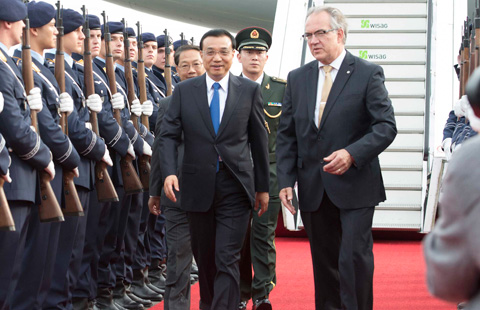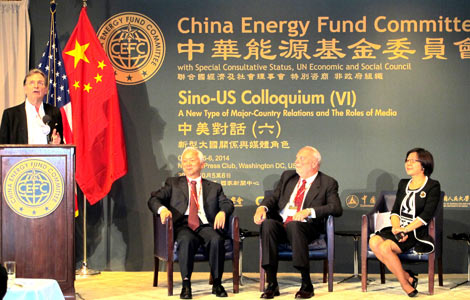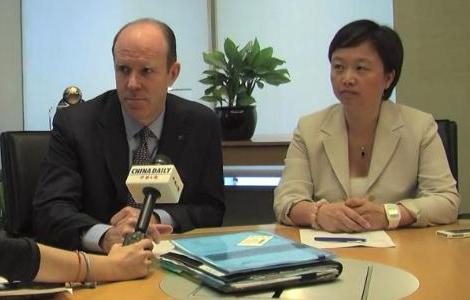Economist eyes China's transformation
Updated: 2014-08-29 13:03
By Chen Weihua in Washington(China Daily USA)
|
||||||||
Early interest in China
A prolific writer on the Chinese economy, Lardy's office bookshelf contains some of the major books he has authored since the 1970s when he researched China's fiscal system of the 1950s for his PhD dissertation and many of the least popular books on China, the yearbooks on Chinese economics and finance in the past 28 years.
However, the economist got interested in China way before he studied Chinese economy in the 1960s as an undergraduate student in the University of Wisconsin at Madison.
Lardy's father, Henry Lardy, was a distinguished biochemist there until he passed away four years ago at the age of 92, having trained 64 graduate students, mentored 110 postdoctoral fellows and published more than 500 papers.
Lardy said he developed a small interest in China as a child in the 1950s when his father had some graduate students from Taiwan and he heard them talking about the crisis over Quemoy and Matsu (Jinmen and Mazu Islands) in the Taiwan Straits. He also heard people talking that John F. Kennedy would recognize China in the early 1960s.
"So I heard about China and I became interested in China very casually," Lardy recalled.
While Lardy enrolled as an economics major at the University of Wisconsin, he also started to learn Chinese, which he said was "because of his interest in China".
The Chinese language class had mostly students who were Chinese Americans whose parents wanted them to learn the language, and there were few Caucasians.
"So at that time, I decided to combine economics with my interest in China," he said.
When he became a graduate student at the University of Michigan, he took more Chinese language classes.
Alexander Eckstein, a leading economist on Chinese economy at that time, was teaching at Michigan.
Realizing that it was impossible to go to China at the time, Lardy spent much time in the Library of Congress going through various provincial papers from China in his research for his PhD paper on China's fiscal revenue sharing between the central and local governments. It later became his first book.
"There was a widespread thesis at that time that China was extremely decentralized in fiscal terms. Essentially I showed that was not quite true," he said of his first book.
Lardy taught at the economics department of Yale University soon after he finished his PhD in 1975. In 1978, he decided to go to Hong Kong to study Chinese at the Chinese University in Hong Kong and do research on Chinese agriculture. That became his second major book published in 1983.
In that book, Lardy looked into not just agricultural production, but also how agriculture supported the national economic growth, through the transfer of resources.
Unlike his first book which was about the transfer of resources geographically between provinces through the central government, the second book was about the transfer of resources from agriculture to industry.
He found that in Mao Zedong's time, the policy was unfavorable to agriculture, citing the prices farmers received in the procurement system.
"So it was industrialization based on exploitation of agriculture," Lardy said.
But he said that changed greatly after 1978 when farmers got a much better deal.
Most Viewed
Editor's Picks

|

|

|

|

|

|
Today's Top News
Premier pushes innovation on German visit
Beijing to keep the lid on air pollution for APEC
Li arrives in Germany, first leg of Europe trip
China's economy surpasses US
IMF: Shadow banking filling gaps
China's status prominent at 'Big Four' firm Ernst & Young
US Ebola patient dies
China's role grows in Gates Foundation tech push
US Weekly

|

|















